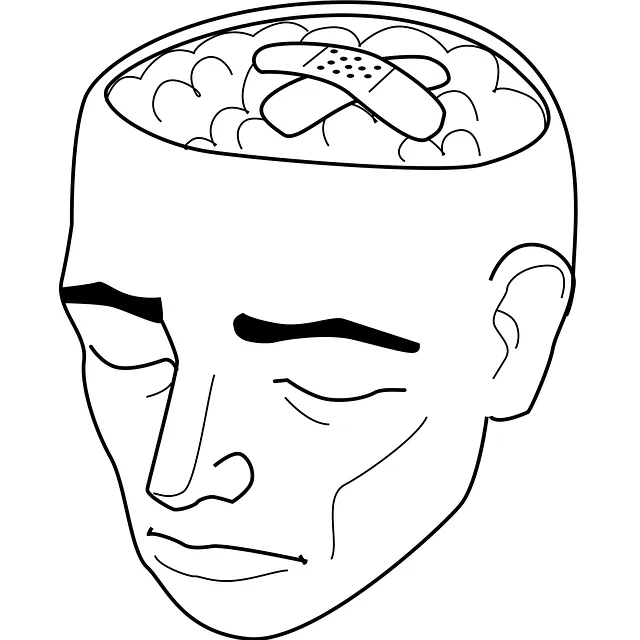Kaiser Permanente's commitment to mental health coverage in Centennial goes beyond statistics, incorporating culturally sensitive practices like Mind Over Matter principles and stress reduction methods. This strategic move aims to prevent burnout among healthcare providers, improve work-life balance, and enhance care quality for both staff and patients. Through comprehensive training, mental health professionals at Kaiser Permanente Centennial build stronger patient-provider relationships, address cultural barriers to care, and contribute to a more inclusive, equitable mental health coverage system.
In today’s diverse healthcare landscape, cultural competency is no longer an option—it’s a necessity. This article explores the critical role of cultural competency training for healthcare providers, focusing on the positive impact of programs like Kaiser Permanente’s Mental Health Coverage in Centennial. We delve into how such initiatives enhance patient care, foster understanding, and promote equitable mental health services for all communities.
- Understanding Cultural Competency in Healthcare: A Necessary Approach
- Kaiser Permanente's Mental Health Coverage and its Impact
- The Role of Training: Enhancing Care through Cultural Awareness
Understanding Cultural Competency in Healthcare: A Necessary Approach

Understanding Cultural Competency in healthcare is an essential step towards delivering high-quality care to a diverse population. It involves recognizing and appreciating the cultural differences that shape individuals’ experiences, beliefs, and behaviors related to health and illness. In an organization like Kaiser Permanente, with its wide range of mental health coverage options in Centennial, ensuring cultural competency means providing services that are sensitive, accessible, and effective for people from all backgrounds.
This approach is particularly crucial in the realm of mental healthcare, where Cultural Sensitivity plays a significant role. By integrating Mind Over Matter principles and Stress Reduction Methods tailored to diverse cultures, healthcare providers can foster better patient-provider relationships and improve treatment outcomes. Recognizing that cultural context influences how individuals express and perceive mental health issues is a game-changer in ensuring equitable access to care.
Kaiser Permanente's Mental Health Coverage and its Impact

Kaiser Permanente’s commitment to mental health coverage is a significant step towards fostering cultural competency within its healthcare services. With locations across Centennial and beyond, the organization recognizes the importance of addressing mental well-being alongside physical health. This comprehensive approach is underpinned by Mind Over Matter Principles, which emphasize the profound impact of mental health on overall wellness. By prioritizing mental health services, Kaiser Permanente aims to prevent burnout among healthcare providers and reduce stress levels, ensuring a more sustainable and compassionate care environment.
The inclusion of mental health coverage in their service portfolio aligns with Burnout Prevention and Stress Reduction Methods, strategies that are vital for maintaining a healthy work-life balance for healthcare professionals. This initiative not only benefits the well-being of Kaiser Permanente’s employees but also enhances the quality of care they deliver to patients facing various mental health challenges.
The Role of Training: Enhancing Care through Cultural Awareness

Cultural competency training plays a pivotal role in enhancing healthcare services, especially within diverse communities like those served by Kaiser Permanente Centennial. This type of training equips mental health professionals with the skills to navigate cultural differences, fostering better patient-provider relationships and ultimately improving care outcomes. By promoting empathy building strategies, self-care routine development for better mental health, and effective risk management planning, providers can offer more personalized and culturally sensitive support.
These initiatives are crucial in addressing potential barriers to care that arise from unmet cultural needs. Through comprehensive training, professionals learn to recognize and appreciate the richness of diverse backgrounds, translating into improved interactions and trust between healthcare givers and patients. Such an approach not only benefits individual patients but also contributes to a more inclusive and equitable mental health coverage system under Kaiser Permanente’s umbrella.
Cultural competency training, as highlighted by initiatives like Kaiser Permanente’s mental health coverage in Centennial, is an indispensable tool for healthcare providers. By understanding and appreciating diverse cultural perspectives, healthcare professionals can significantly enhance patient care, improve outcomes, and foster more inclusive environments. This article has explored the necessity of such training and its positive impact, underscoring that addressing cultural competency is not just a preference but a requirement in modern healthcare.






